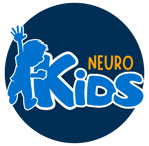
TIPS AND ADVICE FOR PARENTS AND CAREGIVERS
Supporting the development and well-being of your child and family with science and love...
In NeuroKids, we understand the concerns and challenges you face as parents. That's why we've created a support community dedicated to offering specialized solutions in neuropediatrics and pediatric neurological care. Our mission is to provide you and your child with the necessary tools to improve their quality of life, offering personalized and effective care alternatives. Here, you will find practical advice and useful tips for parents of children with neurological disorders, designed to help you face this situation with confidence and support. Remember, at NeuroKids, we are here to accompany you and provide the necessary support every step of the way. We are here to guide you through this journey, and together, we can help your child reach their full potential!
Information and Education
Staying well-informed is one of the first steps to helping your child effectively. By learning more about neurological disorders and the related scientific advancements, you'll be able to make more informed decisions about their treatment and well-being. Additionally, understanding the impact of these disorders on your child's development will allow you to set realistic expectations and better support them throughout their process. At NeuroKids, we provide educational resources to help you understand how these disorders affect children and what steps you can take to offer them a supportive environment.


Seek Emotional and Social Support
Parents of children with neurological disorders may feel isolated and overwhelmed on their journey. It is crucial to seek emotional support to manage the stress and emotions that arise. There are support groups, both in-person and virtual, where other parents share their experiences and advice. Additionally, having a social support network of friends and family who understand what you're going through can be essential for your emotional well-being. Never underestimate the importance of sharing your feelings and experiences, and remember that asking for help is not a sign of weakness, but a brave act of self-care.


Find the Right Specialist
Having the support of specialized professionals is essential for your child's proper treatment. Pediatric neurologists, psychologists, and other child development specialists have the knowledge and experience to offer accurate diagnoses and effective treatments. At NeuroKids, we connect you with child care experts who work with an integrative approach, evaluating all areas of your child's development and creating a personalized intervention plan. Finding the right specialist can make a significant difference in your child's progress.


Establish a Routine and Create an Optimal Environment
Children with neurological disorders tend to feel more comfortable and secure when they have a set daily routine. Predictability reduces anxiety and improves their ability to focus and learn. Organizing the space at home to be calm and organized also promotes their well-being. It's important that the environment is peaceful, with minimal distractions, and tailored to your child's specific needs. Establishing clear habits for meals, rest, and recreational activities also contributes to emotional well-being, providing them with structure that helps them feel more secure and supported.


Encourage Communication and Emotional Expression
Children with neurological disorders may experience difficulties communicating and expressing their emotions. It's important to create an environment that encourages them to talk about how they feel and what they think, even if they don't always have the right words to express themselves. Use tools such as play, drawing, or even music to help them express their emotions more effectively. Encouraging these skills will allow them to better manage their feelings and develop a greater understanding of themselves, which is essential for their long-term emotional well-being.


Participate in Complementary Activities and Therapies
Complementary therapies such as speech therapy, physiotherapy, and occupational therapy can be crucial for the development of your child's motor, cognitive, and social skills. Additionally, recreational activities such as sports, arts, or music can be beneficial for improving their self-esteem and fostering creativity. As a parent, it’s important to actively engage in these therapies, both during sessions and in daily practices at home. Actively participating in therapies and activities helps reinforce learning and shows your child that you are committed to their well-being.


Be Patient and Celebrate Small Achievements
The path to well-being can be long, and it's important to remain patient as your child progresses in their developmental journey. Achievements are not always immediate, but every small step is valuable. Whether it’s an improvement in their communication skills, a change in behavior, or a new skill learned, celebrate these accomplishments with enthusiasm. Acknowledging the effort and progress, even in small victories, boosts your child's motivation and reinforces their self-esteem. Your constant support is key to helping them continue moving forward.


Take Care of Yourself
Being a parent to a child with special needs can be physically and emotionally demanding. In order to care for your child, you must first take care of yourself. Make sure to reserve time to rest, relax, and attend to your own emotional needs. Look for activities that allow you to disconnect, such as exercising, reading, or spending time with friends. Remember, when you take care of yourself, you not only improve your own well-being, but you also become a better support system for your child. At NeuroKids, we understand that the well-being of the entire family is essential for the progress of each child, which is why we offer guidance not only for the children but also for their parents.






Schedule Your FIRST SESSION
At NeuroKids, we care about providing you with the best care from the very first moment. If you are ready to take the next step in your child's well-being and development, scheduling your first session is the first step toward a path of comprehensive and specialized support.
Here’s how the process works:
Appointment Request and Initial Interview (completely free).
Regular sessions last approximately 30 to 45 minutes.
PAP sessions are free and last approximately 15 minutes. (PAP sessions are for individuals in psychological crisis or with elevated stress levels only).


